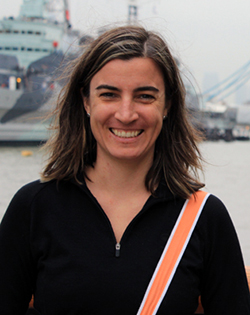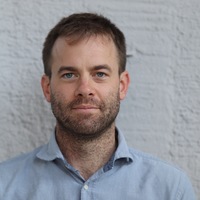linguistics
Linguistics Colloquium Series
“A world beyond this one”: Sustaining afro-brasilidade through language, ritual, and culture teaching in northeastern Brazil
Adrienne Ronee Washington (she/her/hers)
Theories on the intersections of language and race (raciolinguistics, Alim et al., 2016; Flores & Rosa, 2015) and on the semiotics of race (raciosemiotics, Smalls, 2015, 2020) are positioned well to understand how multiple identities co-craft personhood, that is, how language informs race, ethnoracial formations, and racism, and also how they recursively shape language. Yet such theories have not been regularly applied in exploring the place of religion (along with language and race) in identity co-construction, including intersectional hierarchies and the contestations of such hegemonic power formations by members of multiply marginalized groups.
Building upon language and religion scholarship and raciolinguistics (including principally raciosemiotics), this research advances racioreligious linguistic ideologies as a concept to examine the discursive processes through which language, race, and spirituality become entangled within cultural lenses. I begin by exploring racialization of Yoruba-inspired (Nagô in Bahia) spiritualities and linguistic/semiotic practices under colonialism and racial slavery and then continue into the modern context, where Nagô/Yoruba has come to epitomize Blackness. I present an extended example of racioreligious linguistic ideologies in the Brazilian city of Salvador within a school where educators teach Nagô/Yoruba as part of an effort to inform students about African-matrix histories and cultures and develop positive identities.
Qualitative analyses of interview, participant observation, and photographic data highlight how interlocutors in this community, working within affirmative racioreligious linguistic ideologies and the values they assign to personhood, ritual knowledge, and language practices, engage in education as racioreligious identity work to resist systemic racial, religious, and linguistic prejudices, sustain traditional knowledge, and affirm Blackness. This work is instructive for other contexts where religious thinking has inspired ideas of essentialized differences, and it opens space for an explicit interrogation of how religious supremacy, in cooperation with systemic racial and linguistic privileges, has participated in subordination and has necessitated counterdiscursive strategies.
Linguistics seminar series: Ashley Stinnett

Ashley Stinnett, is an assistant professor in the Department of Folk Studies and Anthropology at Western Kentucky University. She received her Ph.D. from the School of Anthropology at the University of Arizona. Her areas of specialization are linguistic anthropology with a sub-specialty in applied visual ethnography and educational documentary filmmaking. Her research primarily concerns the sociocultural and linguistic processes in which locally centered, historical and traditional knowledge specific to food are realized and put into daily practice. Ashley researches language production in communities of practice in occupational settings and community driven efforts, specifically related to food production. Additionally, she partners with local community organizations utilizing applied anthropological approaches while synchronously incorporating visual anthropology methodologies in both the practice and the production of visual media materials. Her primary research focuses on language practices of heritage butchers in the Southwestern United States. Her most recent project utilizes linguistic and sensory ethnography in a focus on food fermentation.
Linguistics seminar series: Ashley Stinnett

Ashley Stinnett, is an assistant professor in the Department of Folk Studies and Anthropology at Western Kentucky University. She received her Ph.D. from the School of Anthropology at the University of Arizona. Her areas of specialization are linguistic anthropology with a sub-specialty in applied visual ethnography and educational documentary filmmaking. Her research primarily concerns the sociocultural and linguistic processes in which locally centered, historical and traditional knowledge specific to food are realized and put into daily practice. Ashley researches language production in communities of practice in occupational settings and community driven efforts, specifically related to food production. Additionally, she partners with local community organizations utilizing applied anthropological approaches while synchronously incorporating visual anthropology methodologies in both the practice and the production of visual media materials. Her primary research focuses on language practices of heritage butchers in the Southwestern United States. Her most recent project utilizes linguistic and sensory ethnography in a focus on food fermentation.
Linguistics MLK Seminar: Barbra Meek
Linguistics MLK Seminar: Barbra Meek
Growing Your Elative: Linguistic Seminar Series

Growing Your Elative: Linguistic Seminar Series

